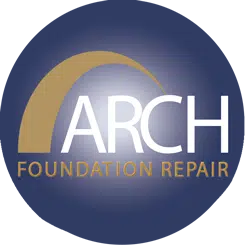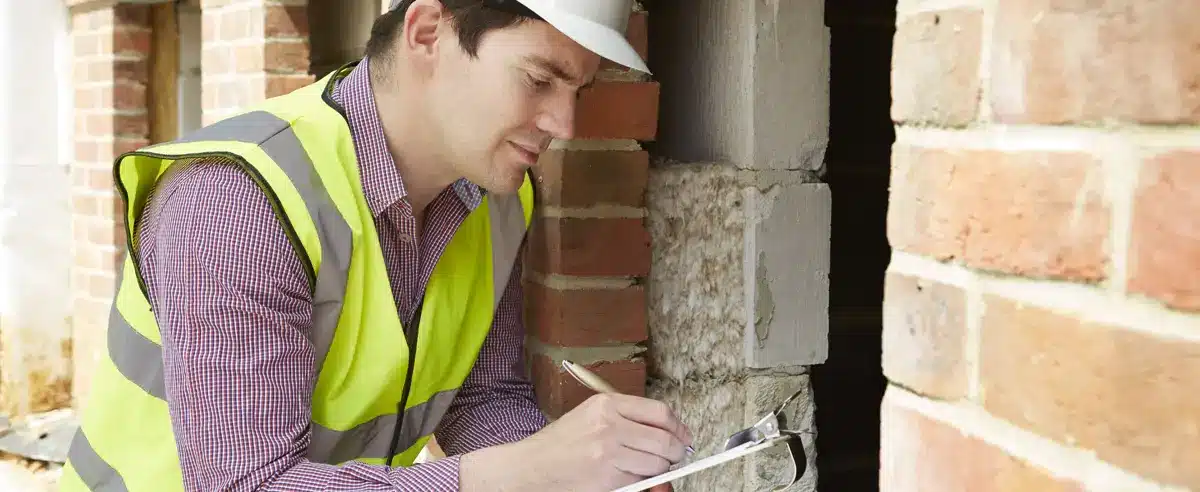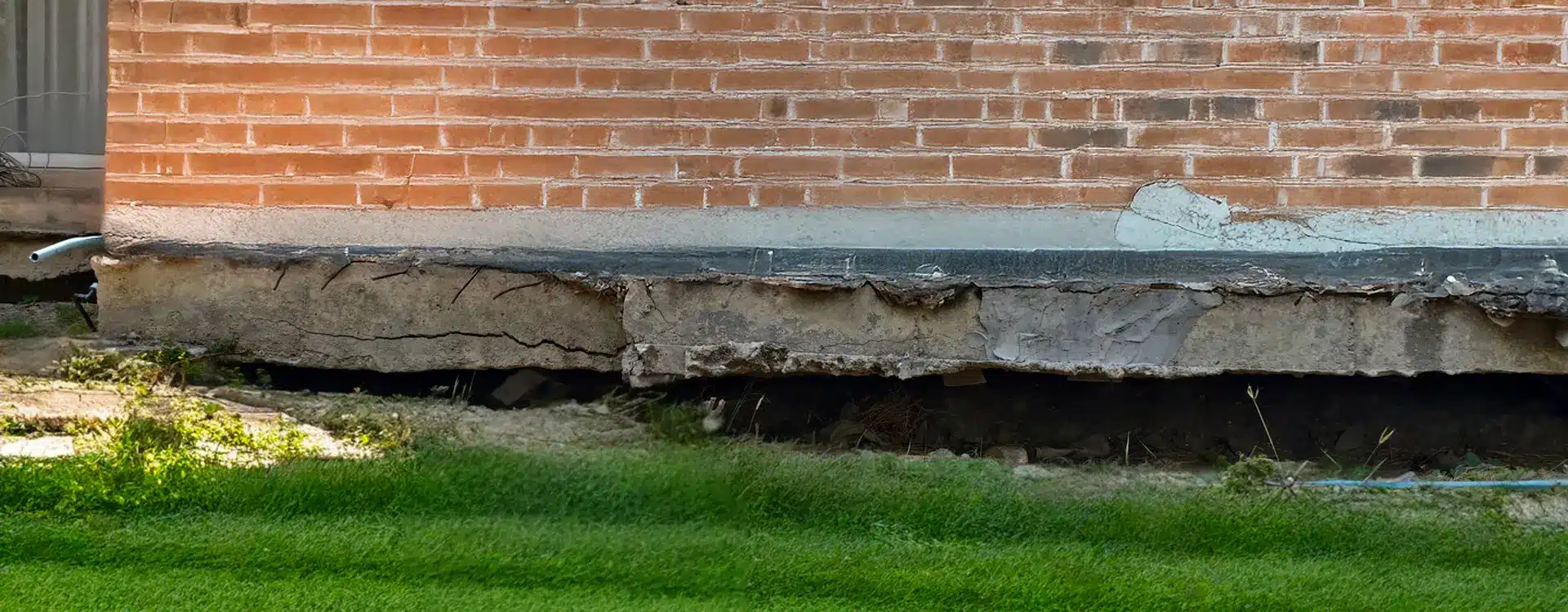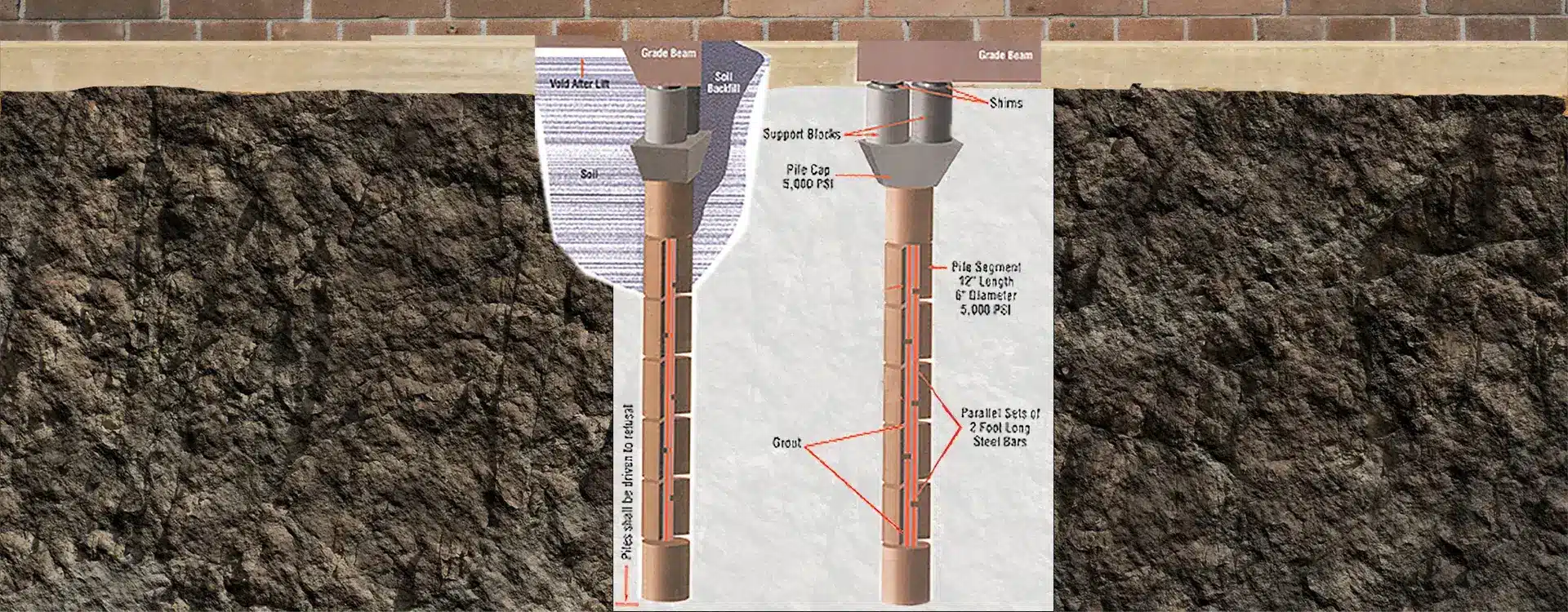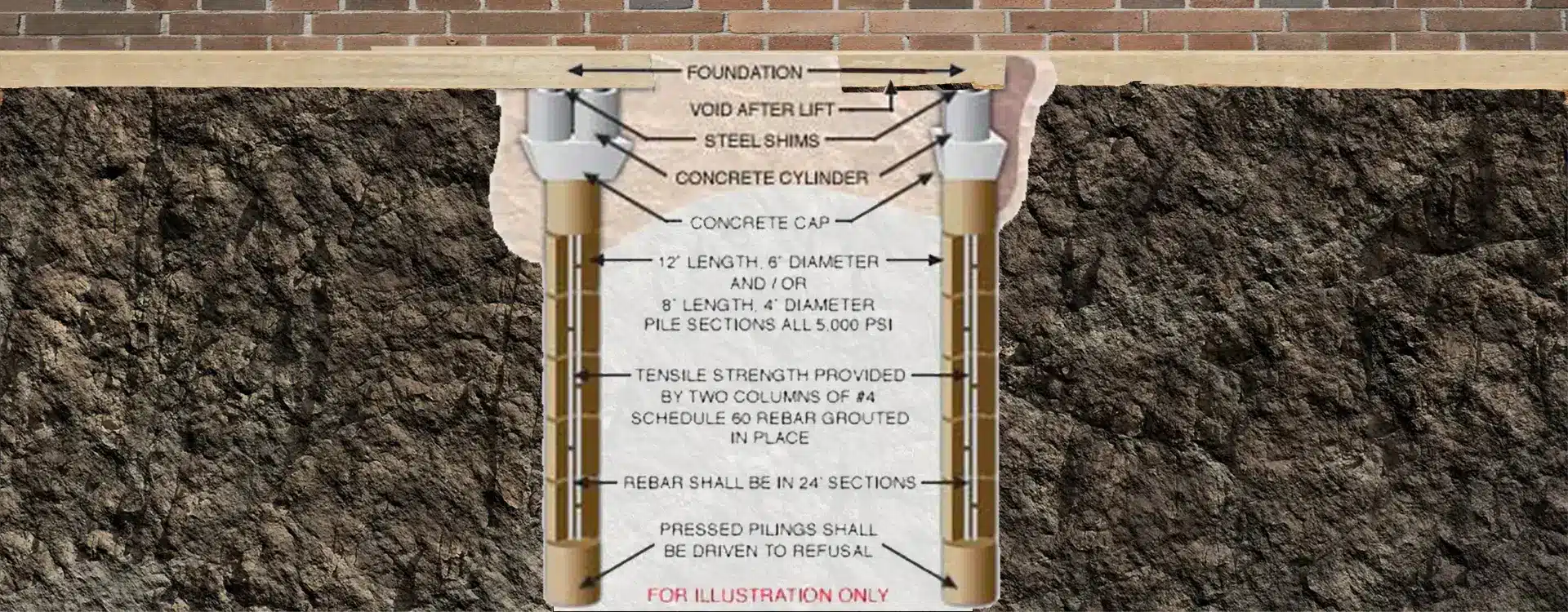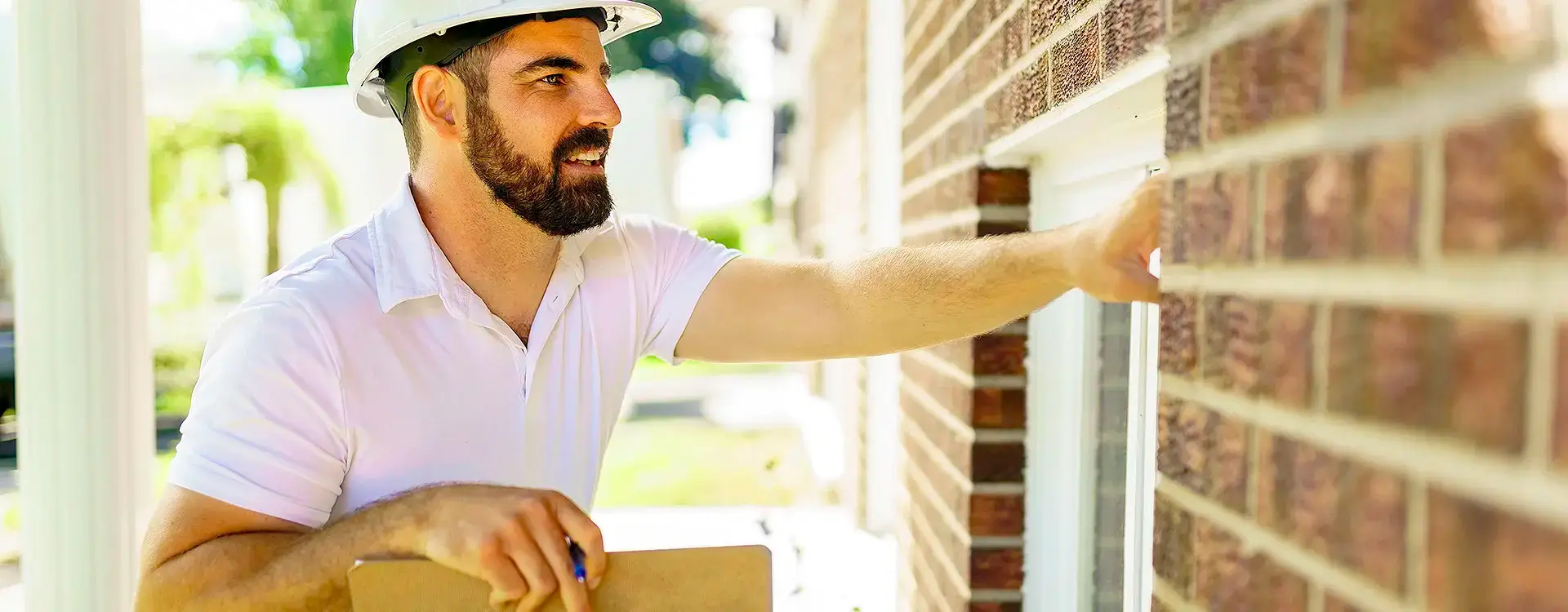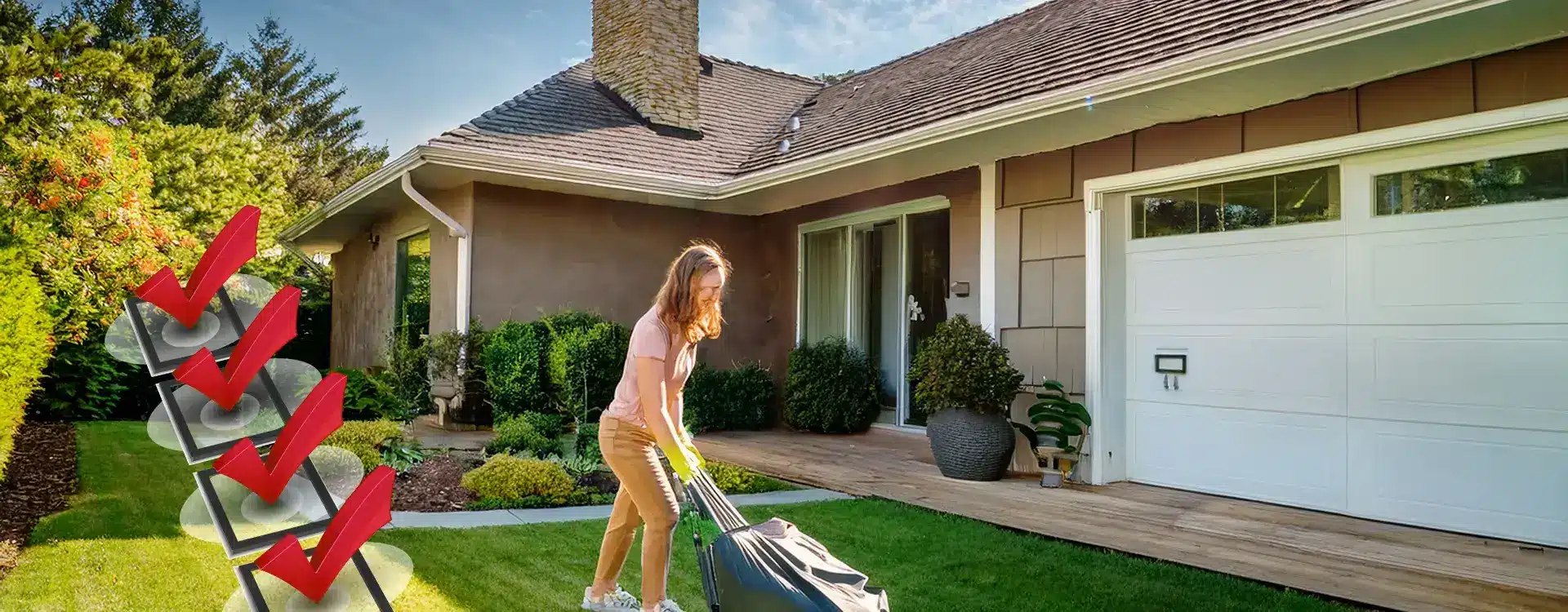Know when to get a foundation foundation inspection. How do you know if your foundation needs repair? Have you noticed signs of foundation problems? Signs include drywall cracks, uneven floors, or doors that will not close. If yes, it is important not to wait too long before seeking expert advice. Unaddressed foundation issues worsen quickly. It can lead to bigger and more expensive repairs.
Act quickly. Start with a foundation inspection. Their recommendations help you make decisions about the necessary repairs. Our guide provides step-by-step instructions for homeowners dealing with potential foundation problems, from scheduling a professional inspection to selecting the right contractor. Following our steps. Diagnose and fix your foundation issues. Have it done the right way and within budget.
Schedule an Inspection
Start by hiring a foundation contractor for a detailed inspection of your home. A professional will perform a comprehensive assessment, including:
- Measuring and documenting the exterior dimensions of your home to establish a baseline.
- Creating an interior floor plan to assess the layout and identify areas of concern.
- Documenting visible damage, such as cracks in walls or uneven surfaces that indicate foundation movement.
- Using specialized equipment to conduct an elevation survey and identify any irregularities in the foundation.
- Preparing a contour diagram that shows elevation variations, helping identify damage.
Start with a comprehensive inspection. It is the foundation for understanding your foundation issues. It is the guide that outlines the next steps for repair and restoration.
Evaluate Your Needs
After the inspection, assess the visible signs of foundation issues that prompted your concerns, including:
- Cracks in walls, ceilings, or floors may grow larger over time.
- Doors and windows that are difficult to open or close indicate structural shifts.
- Floors that slope or are noticeably uneven could signal a sinking foundation.
Documenting these signs in detail allows you to better understand the underlying causes, which may range from soil movement and water damage to structural settling. The document will help you make more informed decisions about your repair options.
Hire a Foundation Repair Contractor
Choosing the right contractor so your foundation repairs the right way. Use the following contractor hiring checklist. It should help you get started.
- Verify Credentials: Always check the contractor’s licensing, insurance, and certifications. It’s important to make sure they are qualified to take care of your foundation repair needs.
- Check References: Ask for past client references. While checking references, ask about their experience with the repair process.
- Review Multiple Bids: Get estimates from at least three contractors, ensuring each has the same scope of work outlined. This helps you compare costs and approaches more effectively.
- Avoid High-Pressure Sales: Don’t let contractors push you for a quick decision. Take your time before signing.
- Request Detailed Contracts: Contracts should clearly specify the type of repairs, materials used, estimated costs, timeline, and payment terms.
Understand Contracts and Permits
Carefully review contacts before signing on the bottom line. Make sure it includes the following:
- A detailed description of the repairs, including the type of foundation supports used, necessary plumbing tests, and any required permits.
- Outlines a clear payment schedule. It includes a complete breakdown of costs. You want to avoid unexpected charges.
- Warranty terms that clearly list in detail the contractor’s responsibilities after the work is done.
Additionally, check that all needed permits are gotten before work begins. It is up to the contractor’s to get the permits. This way you know everything will be to code.
Secure Financing for Repairs
Foundation repairs can be costly, but several financing options can help make them more manageable:
- Personal Loans: These loans are quick to obtain but may carry higher interest rates.
- Home Equity Loans: Use home equity. You may get lower interest rates and longer repayment terms.
- FHA Loans: If eligible, you may qualify for an FHA loan through an approved lender, which often has more favorable terms for home repairs.
Compare terms, interest rates, and repayment plans. You want the best financing option. If your insurance covers foundation damage, speak with your provider to understand your coverage limits before proceeding.
Verify Warranties
Warranties are an important part of the repair process. Ensure that any warranties provided by contractors are:
- In Writing: Do more than a handshake deal. Verbal agreements are not enforceable, so ensure everything gets documented.
- Backed by Trusts or Insurance: This guarantees that future claims will be covered, even if the contractor goes out of business.
Be proactive in verifying the warranty’s terms and ensure that those terms protect you in the future.
Act Quickly
Addressing foundation problems early on. It saves you from much larger expenses and potential future structural issues. Follow our steps. Start with a professional inspection. Take it slow and watch the details during the repair and financing process. Be in control. Be in a better position when making decisions. Safeguard the integrity of your home.
Choosing the right contractor, verify warranties, and understand financing options. Everything is key to a successful foundation repair project. Act quickly and wisely to protect your investment and your home’s long-term stability. For more expert advice, be contact our foundation repair specialists who guide you through the process with the expertise you need.
What to Expect Before, During, and After Foundation Repair Series
What to Expect Before Foundation Repair
- 20 Signs of Foundation Damage – Easy Checklist
- When to Get a Foundation Inspection – How to Know if Your Foundation Needs Repair
- Preparation for Construction Before Foundation Repairs
What to Expect During Foundation Repair
- What to Expect During Foundation Repair – Detailed Guide
- Can You Live in a House During Foundation Repair?
- How is Foundation Repair Done – The Process from Start to Finish
What to Expect After Foundation Repair
